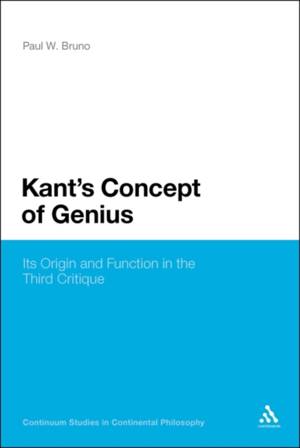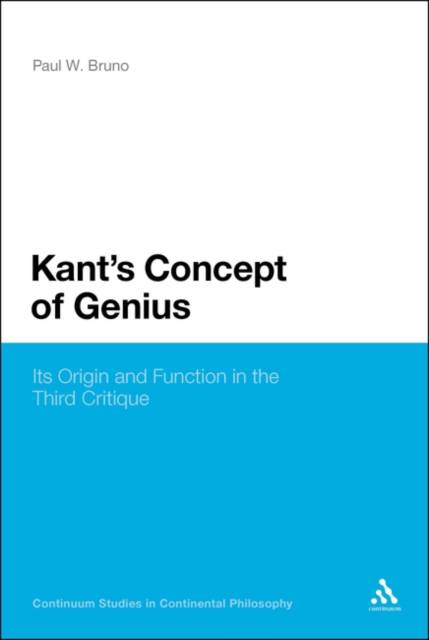
- Afhalen na 1 uur in een winkel met voorraad
- Gratis thuislevering in België vanaf € 30
- Ruim aanbod met 7 miljoen producten
- Afhalen na 1 uur in een winkel met voorraad
- Gratis thuislevering in België vanaf € 30
- Ruim aanbod met 7 miljoen producten
Zoeken
€ 89,95
+ 179 punten
Uitvoering
Omschrijving
While many studies have chronicled the Romantic legacy of artistic genius, this book uncovers the roots of the concept of genius in Kant's third Critique, alongside the development of his understanding of nature. Paul Bruno addresses a genuine gap in the existing scholarship by exploring the origins of Kant's thought on aesthetic judgment and particularly the artist.
The development of the word 'genius' and its intimate association with the artist played itself out in a rich cultural context, a context that is inescapably significant in Western thought. Bruno shows how in many ways we are still interrogating the ways in which a nature governed by physical laws can be reconciled with a spirit of human creativity and freedom. This book leads us to a better understanding of the centrality of understanding the modern artistic enterprise, characterized as it is by creativity, for modern conceptions of the self.Specificaties
Betrokkenen
- Auteur(s):
- Uitgeverij:
Inhoud
- Aantal bladzijden:
- 176
- Taal:
- Engels
- Reeks:
- Reeksnummer:
- nr. 34
Eigenschappen
- Productcode (EAN):
- 9781441132543
- Verschijningsdatum:
- 29/12/2011
- Uitvoering:
- Paperback
- Formaat:
- Trade paperback (VS)
- Afmetingen:
- 156 mm x 234 mm
- Gewicht:
- 254 g

Alleen bij Standaard Boekhandel
+ 179 punten op je klantenkaart van Standaard Boekhandel
Beoordelingen
We publiceren alleen reviews die voldoen aan de voorwaarden voor reviews. Bekijk onze voorwaarden voor reviews.








